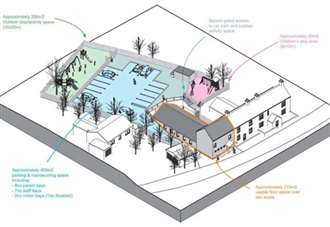Severe flooding in Texas has raised significant concerns about the media’s approach to reporting on natural disasters. As heavy rainfall inundated several regions, including Houston and Austin, critics have highlighted how coverage appears to align closely with political narratives, specifically those of the Democratic Party.
The flooding, which began in early July 2023, resulted in the displacement of thousands and caused widespread damage. Local authorities reported that some areas received over 10 inches of rain within just a few hours. Emergency services worked tirelessly to rescue stranded residents and provide essential aid.
Media Coverage Under Scrutiny
Traditionally, natural disasters prompt a thorough newsgathering process, characterized by comprehensive analysis and reporting. Yet, many observers have noted a shift in how media outlets approached the Texas floods. Instead of focusing solely on the crisis and its impact, coverage has seemingly been influenced by the Democratic Party’s speaking points regarding climate change and infrastructure.
This has led to criticism from various sectors, including media analysts and political commentators. They argue that the framing of the floods has been used to push specific agendas rather than simply informing the public about the disaster. Reports indicated that some outlets emphasized political implications over human stories, which has sparked debate about journalistic integrity and responsibility in times of crisis.
According to the National Oceanic and Atmospheric Administration (NOAA), the flooding is part of a broader pattern of extreme weather events linked to climate change. While this information is crucial, critics contend that it should not overshadow the immediate needs and experiences of those affected by the disaster.
Human Impact and Community Response
The real human toll of the flooding cannot be overstated. Residents have expressed their fear and frustration as they navigate the aftermath of the disaster. Many families have lost their homes, and local shelters are overwhelmed with those seeking refuge.
Community organizations have stepped up to provide assistance, distributing food, clothing, and essential supplies to those in need. Local authorities have coordinated efforts to ensure that resources are effectively allocated. As recovery efforts continue, the focus remains on the challenges faced by individuals and families who have been directly impacted by the floods.
In the coming weeks, it will be essential for media coverage to strike a balance between addressing the political narratives surrounding climate change and delivering accurate, compassionate reporting on the ongoing humanitarian crisis in Texas. The public relies on journalism to provide clarity and understanding during such challenging times, making it vital for outlets to prioritize the human stories that underscore the disaster’s impact.
As the situation evolves, attention must remain on the recovery process and the support needed for affected communities. In doing so, the media can play a pivotal role in not only informing the public but also fostering a sense of solidarity and support among those facing the aftermath of the Texas floods.






































































